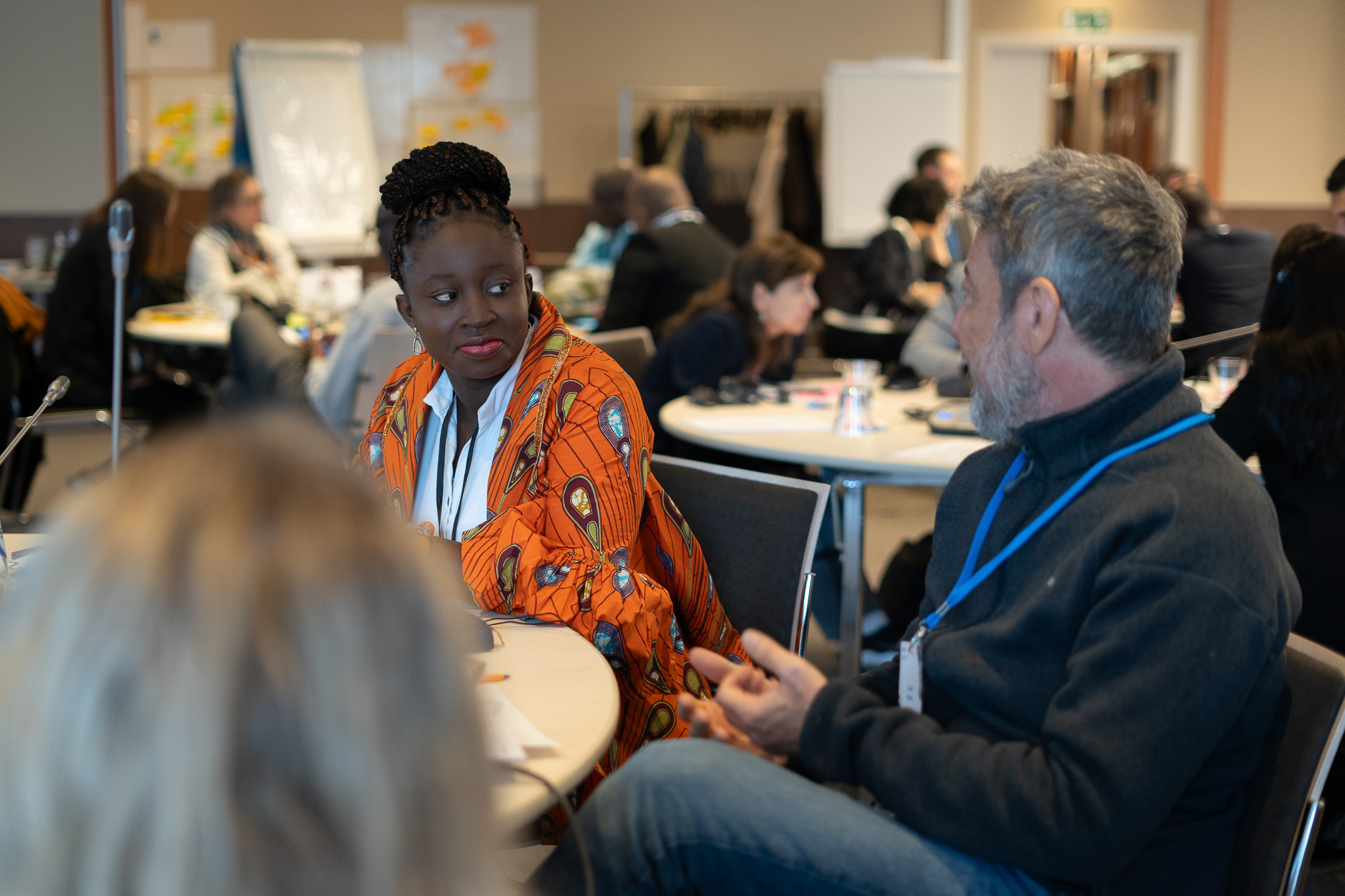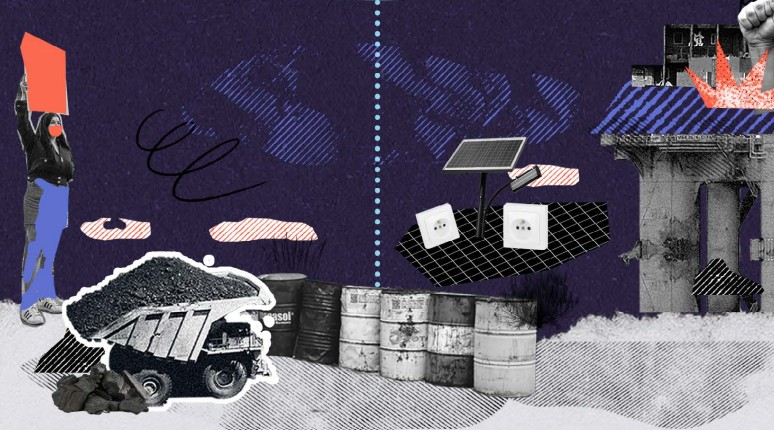National Coordinators from 34 countries responded to our survey that took place during January and February this year, describing the progress that their PWYP coalitions made towards PWYP’s strategic goals.
The annual survey asks National Coordinators to give feedback on the advocacy progress made by their coalitions in the past 12 months.
While covering a range of issues, the survey revealed a significant trend in 2023: coalitions across the network began to prioritise and focus on the mining for ‘transition minerals’ – minerals crucial for renewable energy technologies – in response to surging global demand for these resources.
Among the 34 National Coordinators surveyed, approximately two-thirds reported active engagement by their coalitions in advocating for improved governance of transition minerals throughout 2023. Additionally, the survey highlighted an enhanced level of collaboration among PWYP coalitions, driven by collective advocacy efforts on these pressing matters.
National Coordinators described how coalitions’ work on transition minerals encompassed the whole value chain of extraction – from pushing for transparency and accountability before decisions to extract have taken place – through to ‘following the money’ from active mines to ensure that communities get the right share of benefits.
They reported that their coalitions worked on:
- – Creating public debates on the potential pros and cons of new extraction before new projects are taking place – including discussing the social, environmental and political risks of new mining – alongside the potential for new funds for development – and proposing policy solutions to address these issues.
- – Attempting to lock-in benefits from new mining through advocating for better contract terms, new or improved laws, frameworks and policies.
- – Strengthening social and environmental protections through new policies and legal changes, or through leveraging the EITI and demanding better contract conditions.
- – Supporting communities and building movements to address transition minerals issues.
- – Seeking redress for pollution.
- – Pushing for data disclosure to enable citizens’ groups to understand the terms of contracts and to ensure that revenue flows are visible so that communities can claim their fair share.
Creating public debates and policy responses to transition minerals
The National Coordinators for PWYP Ghana and PWYP Tanzania exemplified how their coalitions sparked national debates on the advantages and disadvantages of transition minerals, and promoted policy recommendations in anticipation of mining expansion.
In the Ivory Coast, Zambia, Mali, Ghana, Sierra Leone – National Coordinators reported that their coalitions had conducted advocacy for better oversight of transition minerals during 2023. This advocacy included initiatives to review laws and mining codes, as well as efforts to secure improved benefits for their countries and communities. For example, they advocated for domestic mineral processing to maximise local benefits
PWYP Zambia successfully advocated for strengthening of mineral resource legislation and for a national transition minerals strategy, resulting in a first government draft for consultation. PWYP Madagascar advocated for the creation of a national strategy, while influencing better community royalties from existing mines – using EITI data to make the case. PWYP DRC and Lebanon used the EITI process to strengthen provisions relating to transition mineral extraction.
Meanwhile, PWYP Australia advocated to prevent deregulation of transition minerals activities – pushing back against mining companies hoping to loosen regulation. They also made important progress on climate disclosures – see the full briefing on the survey here.
Empowering citizens’ groups
Working on transition minerals also meant supporting communities and civil society on the issues.
PWYP Indonesia and PWYP Philippines outlined their efforts in 2023, to empower community and citizens’ groups to speak out on transition minerals issues and defend their interests. Similarly, PWYP Guinea Bissau contributed to enhancing local community knowledge of the impacts of the energy transition and revenue flows, enabling these communities to advocate for themselves.
PWYP Senegal and Timor Leste conducted advocacy to guarantee financing for Just Energy Transition Plans, reaching communities and excluded groups. Meanwhile, PWYP Zimbabwe supported community organisations to analyse the proposed Mining Bill so that they could influence it.
How contract disclosure fits into this
A crucial aspect of our efforts to ensure good governance of transition minerals includes our ongoing struggle to get contracts disclosed more broadly, so that citizens’ groups can push for better terms in any extractive deals.
For example, the PWYP Democratic Republic of Congo national coordinator reported how the coalition and its partners used data from the DRC EITI to critique the international mining agreement between the DRC state and the Chinese Business Group (much of which concerns transition minerals) – resulting in successful advocacy to have the agreement renegotiated – and resulting in better terms for the DRC state.
PWYP Tunisia published a critique of transition minerals production data and contracts, while also campaigning to accelerate the national energy transition.
Other coalitions also prioritised increased contract transparency. PWYP Mali played a crucial role in ensuring the publication of over 300 mining contracts, annexes, and amendments through the EITI-Mali website. PWYP Iraq and its EITI partners secured an order from the Iraqi Minister of Oil requiring all national and foreign companies to publish all oil contracts.
PWYP Uganda also sought better contract disclosure in the context of transition minerals and as well as fossil fuels contracting.
Working together to face these new challenges
Collaborative efforts regarding transition minerals within the network have evolved, both spontaneously from coalitions and through facilitation and mobilisation by the International Secretariat. National Coordinators commonly mentioned participation in joint planning, information sharing and regional working groups as key factors
Between 2020 and 2024 there has been a marked growth in the proportions of National Coordinators saying that their coalitions took part in PWYP issue-based working groups, webinars and joint actions.For example, 64% of National Coordinators reported participation in PWYP issue-based working groups in 2024 compared with 30% in 2020.
Additionally, approximately half of National Coordinators also identified that their coalition had participated in planning on transition minerals advocacy with other PWYP coalitions during 2023.
Feedback on Vision 2025 Strategy
National Coordinators’ descriptions of work on transition minerals issues highlight the effectiveness of advocacy across different stages of the extractive ‘value chain’ and how diverse approaches can complement each other. This combination underpins PWYP’s Vision 2020-2025 Strategy.
Feedback from National Coordinators indicates that the strategy had been largely relevant and enabling, strengthening their coalition’s capacity to contribute to meaningful change. Most National Coordinators also felt that the strategy was relevant to their national context and agreed that it had resulted in improvements in natural resource governance.
As we look ahead to a new strategy beyond Vision 2025, we will be digging further into where and how the Vision 2025 Strategy was effective and relevant – and where it was less so. This will guide us into crafting a new strategy for the next five years that builds upon success and addresses areas for improvement.
To see the full briefing on the results of the 2023 National Coordinator Survey please click here.











